Perhaps one of the most influential and famous stage and screen actors of the 20th Century was a man by the name of Laurence Olivier. Trained in Shakespearean arts, the man would go on to become one of the most captivating and interesting performance artists in all of Britain for many years.
He was born in 1907 in Surrey, where he lived with his two siblings, a mother and his father, Gerard Olivier. Gerard was an Anglican priest who traveled across the various parishes of England, often working as an interim priest. They lived a nomadic lifestyle and Gerard was a very strict man, especially towards his children. Yet it was from his father that Laurence discovered his love of showmanship.
Recommended Reading
Who was Grigori Rasputin? The Story of the Mad Monk Who Dodged Death
Diverse Threads in the History of the United States: The Life of Booker T. Washington
FREEDOM! The Real Life and Death of Sir William Wallace
As he watched his father preach to the people, he could easily see just how masterful Gerard was at performance. The man had skill with oratory and showmanship, increasing intensity or decreasing it seemingly at will. He watched spellbound often as his father, with all the pomp and circumstance of the ornamental adornment of the clergy, would give powerful speeches on the nature of spirituality. This would awaken a natural desire to perform within the boy.
Laurence had no formal ties to the acting world, as neither of his parents were anyone special. They had no special love for theater nor did they have any connections to the acting world, making the boy’s rise to acting dominance quite the exception in the world. Laurence had grown up in a series of preparatory schools, eventually landing him in a religious school where there was a stronger focus on both religious and secular drama. This exposure to the performing arts quickly took the boy in and he found himself acting as Brutus in the play Julius Cesar at the age of ten. His father was fine to support the boy’s endeavors going so far as to tell him not to follow in his own footsteps of being clergy, but instead to pursue after the acting world. Gerard pushed the young man to join the Central School of Speech Training and Dramatic art, where he would learn the vital skills that would propel him to the top of his acting career.
As he grew in his respective field, it was apparent that he certainly had some degree of skill, although at the time, his style of acting was somewhat criticized. Rather than focus on using that special kind of meter and rhythm that stage actors would speak with, he preferred to speak naturally, granting him much criticism at the time. In 1926, he joined the Birmingham Repertory Company, where he would learn even more in his acting career. He toured for quite some time and was in several hit productions and was regarded as a serious up and coming artist.
While Laurence regarded, stage plays as being the most valuable type of art out there, he looked upon films with contempt, believing that they didn’t really capture great acting. At the same time, however, there was far more money to be made in the world of film than there was in the world of theatre, so going against his own beliefs, he agreed to join a film company for a bit and hauled himself out to Hollywood. His attempts to being a part of the new Hollywood scene ended in shambles as the movies he had starred in, Westward Passage, ended up proving to be bust. He returned to Britain, where he would go about meeting one of the most important people in his entire life: Vivien.
He joined a theatre company known as Old Vic, alongside individuals such as Alec Guinness and Ruth Gordon, where the goal was to put on many Shakespearean productions at an affordable cost. It was during this time that he met with Vivien Leigh, a gorgeous actress whom quickly won him over. They were both married at the time, Laurence had married a woman earlier on, someone who didn’t really love him the way he had hoped, but that didn’t matter to them. They began a long and torrid affair, barely taking any pains to conceal it from the world. Vivien was unfortunately someone who struggled with mental illness and was a very poorly behaved actor on the set, but the two had deeply fallen for one another over the course of their time together at Old Vic. She would go on to star as Scarlet O’Hara in Gone with the Wind and Laurence would strike it big time in Wuthering Heights.
Wuthering Heights, a film adaption of the Emily Bronte novel, was being filmed in Hollywood, where he had set his mind upon playing the main role of Heathcliff. There were problems for Laurence, however, as the director and he did not see eye to eye. The theatricality, Laurence maintained, was being stripped away and this created such tension between the two that he was miserable on the set. Despite that misery, however, Wuthering Heights was a major hit after being released and won him an Academy Award nomination for Best Actor, essentially propelling him in front of the world. This would create his image right then and there and success would only continue from that point on.
READ MORE: The Bronte sisters
In 1940, after their divorces were finalized, Vivien and Laurence finally married. This was during the second world war and soon Laurence found himself involved in a propaganda film, hoping to be able to assist his country in the war effort. After making a few propaganda films, he flew as a pilot, a member of the Fleet Air Arm, where he would do very poorly as a military pilot. He would crash his craft no less than three times during his time served. He would continue to assist in making propaganda films until the war was over.
Once the war ended, he found himself working with Old Vic’s theater company once again. During this time, the company had one of the most successful runs they ever had, running multiple shows of Henry IV, King Lear, Cyrano de Bergerac and other classic plays. These would go on to create a real buzz for Olivier, where he would continue to build up in his fame. He would even go on to direct his own film about Hamlet, while he also starred as the main character. Having been both the actor, producer and director of Hamlet, he put his all into the film and his fantastic work was quickly rewarded. In 1948, his film won the Academy Award of Best Picture as well as he won the Best Actor award. These accolades were indeed high praise, especially due to the fact that Hamlet was the first foreign film to ever win the American Academy Award for Best Picture. This was a major feat and continued to propel him to worldwide acclaim. In 1947, he would go on to be knighted, gaining the title of Sir Laurence Olivier, which was quite the title indeed.
As Laurence and Vivien got along in years, there was a continued increase in the erratic behavior of Vivien’s actions. She began to become more emotionally disrupted and despite her skills as an actor, she would have fits of severe emotional distress. Eventually she was diagnosed with manic depression, a condition in which Laurence would find himself entirely unable to assist his wife with her problems. To make things worse, an affair that she had been having came to surface, yet again, as she had multiple affairs on her husband. He wasn’t that much more faithful to her either. Eventually, despite the powerful romance and love that they had for one another, they divorced, and he remarried another woman in 1962.
READ MORE: History of Divorce Law in the USA
Laurence continued in his success as both a theater director and a film star, earning over the years a series of high level awards from both the British Academy Film Awards, known as BAFTA and the American Academy awards. He began to experiment with different types of roles as well, having grown bored with his regular role of always being the strong leading man. He tried out dozens of different characters, ones that were more comedic or ham-like in nature. These roles would do him well, but as the years went on, his health began to experience a rapid decline. Prostate cancer would plague him later on in 1967 and as the years continued, it was becoming clear that his health would be rapidly dwindling.
Latest Biographies
Queen Zenobia: The Charismatic Empress of Ancient Syria
Eleanor of Aquitaine: A Beautiful and Powerful Queen of France and England
Frida Kahlo Accident: How a Single Day Changed an Entire Life
Despite his illnesses, however, he refused to give up work. He would get treated in between shows and focused on trying to get his money in order. While he had been famous across the world for his actions, his finances hadn’t been particularly well managed due to a series of blunders, including a disastrous attempt at doing a self-produced run of Romeo and Juliet back when he had been married to Vivien. While his health was too poor for him to be able to star in any kind of long running film, he worked doing a series of advertisements for Polaroid, although he was deeply ashamed of such a thing and did his best to keep it under wraps.
In 1976, as he slowly recovered from his illness, he was offered a rather interesting albeit unusual role. He was offered the opportunity to portray an evil Nazi war criminal who was on the run for his crimes. The portrayal of such a character was relatively unusual for Laurence, but he took the job anyway. He starred alongside Dustin Hoffman, an American actor who very much believed in the method acting system. Laurence had never particularly liked the concept of method acting. The idea behind method acting was that an actor needed to draw on internal experiences from within in order to make a scene convincing. This was a very popular style of acting that often relied on the actor transforming his own mind and thoughts to conform to the very role that he was playing. Laurence Olivier was not much for that, preferring physical transformation to become an actor. Indeed, Laurence heavily relied on costumes and outlandish ways to make himself look different in order to become a different actor. Whereas the method actor focused on internally becoming their role, Laurence preferred to externally transform into his role.
One humorous story and often quoted joke about method acting happened during the filming of Marathon Man. Dustin Hoffman and Laurence were speaking and Hoffman had stated that since his character had to be awake for 3 days and 3 nights, he had decided to physically stay awake that long as well. This prompted Laurence to utter the famous line “Why don’t you just try acting?” This, of course, was nothing malicious and had been a well-meaning jab at the actor’s dedication, but the line has been quoted so many times before that. In truth, Laurence was a man who often was physically sacrificial as he worked as an actor, many a time he had performed stunts on the stage that could very well have severely injured him and sometimes he had been injured by his own performances.
Explore Other Biographies
John Winthrop: Life, Achievements, Beliefs, and More!
Stubborn sense of fairness: Nelson Mandela’s life-long struggle for peace and equality
Joseph Mengele: The Nazi Angel of Death
Ruby Bridges: A Black Girl Who Desegregated Her School
A Woman of the Wild West: The Life of Mary Hallock Foote
Walter Benjamin: Life, Work, and Death of a Famous Philosopher, Critic, and Essayist
He continued starring in films upwards into the late 80s before his health would finally begin to take a toll on him. In 1989, he starred in his last film before succumbing to his illness, dying of renal failure on the 11th of July, 1989. Indeed, Sir Laurence was one of the greatest actors in the world, receiving four Academy awards for his work, two BAFTAs, five Emmys and three Golden Globes. When it came to showing the world how marvelous traditional acting technique could be, Laurence had succeeded immensely. Many saw his work as genius because while he was a tremendously skilled actor, he had not been raised up in an acting family, he had achieved his success through hard work and determination, not necessarily through natural talent or the success of his family. He was, and always will be, one of the greatest actors in the world because he worked each and every inch to reach that level of success.
READ MORE: Shirley Temple
Sources
TCM Biography: http://www.tcm.com/tcmdb/person/144656%7C96060/Laurence-Olivier/biography.html
Laurence Olivier One of A Kind, Twice Over : http://www.npr.org/2007/05/22/10328436/laurence-olivier-one-of-a-kind-twice-over
Laurence Olivier: http://www.westminster-abbey.org/our-history/people/laurence-olivier
Notable Biographies: http://www.notablebiographies.com/Ni-Pe/Olivier-Laurence.html
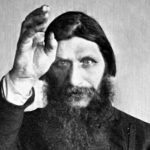
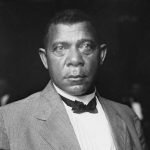
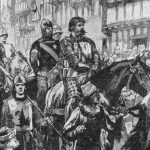

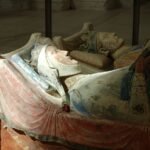



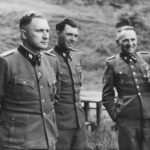
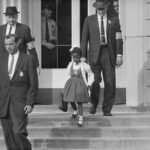

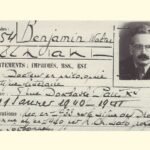
If he was born in 1907 that would make it the twentieth Century not the nineteenth, otherwise an informative and interesting article.
Thanks, Marcus. Not sure how that slipped through the editing process but it’s updated now. Glad you enjoyed the article!
My all time favourite Larry was still is. I saw him on TV in the early 60’s in his film of Richard 111.i became a instant fan. I thought his performance as Richard 111 brilliant acting. I then went on to see hamlet henry v at a cinema in the west end of London. I watched the entertainer on TV recently Larry was brilliant in that to. The diversitity of his acting I liked and his use of pathos and body language. Not seen anyone then and since who could match hum especially in shakespeare and the classics.